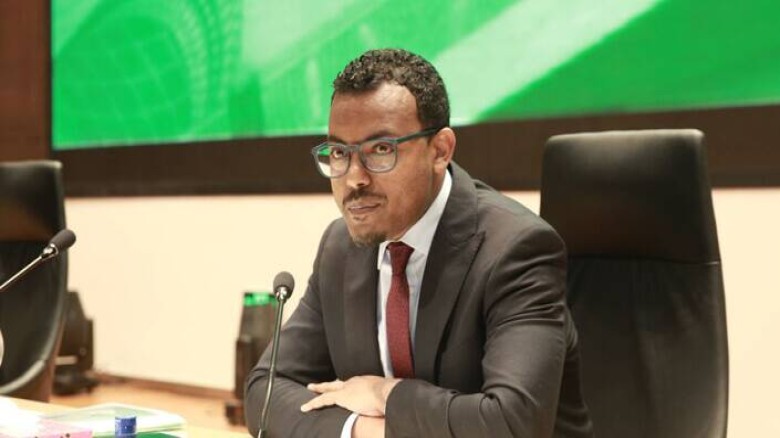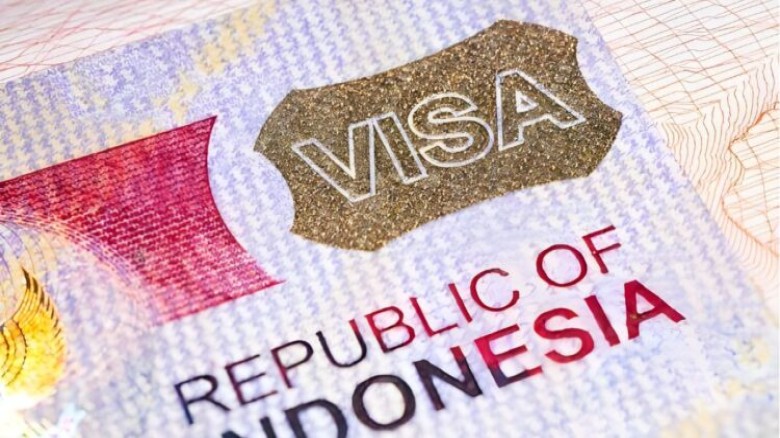Fear of uncontrollable inflation rises as Labour insists on N250,000 minimum wage
As Nigerian workers await the new minimum wage promised by President Bola Tinubu during his Democracy Day broadcast, 'LAOLU AFOLABI examines Nigeria's path to economic stability and prosperity, which is dependent on policies that address inflation, increase output, and ensure equitable wage distribution.
President Bola Tinubu stated on Wednesday that he will shortly present an executive bill to the National Assembly to establish what has been agreed upon as the new national minimum wage for Nigerian workers.
The President's announcement in his Democracy Day speech confirmed reports that the Tripartite Committee established by the Federal Government to determine the new national minimum wage for the next five years had submitted the draft to the President via the Office of the Secretary to the Government of the Federation.
The committee faced a difficult task in reaching an agreement, given the grandstanding of the Organised Labour and the insistence of the Organised Private Sector, the Nigeria Governors' Forum, and other stakeholders on a stable pay. On Friday, June 7, the OPS agreed with the Federal Government's team on a minimum salary of N62,000, but the NGF claimed that even N60,000 was unsustainable, and labour unions reduced their proposal from N494,000 to N250,000 as a living wage.
minimal wages are defined as the minimal amount of payment that an employer is compelled to pay wage earners for labour completed during a specific period, and they cannot be reduced by a collective agreement or an individual contract. Wages exist in more than 90% of International Labour Organisation member countries, and the ILO's Minimum Wage Fixing Convention 1970 (No. 131) called for coverage of "all groups of wage earners, whose terms of employment are such that coverage would be appropriate." The notion of comprehensive consultation with social partners is at the heart of this agreement.
Fixing the national minimum wage is an item on the Exclusive list of the Federal Republic of Nigeria's 1999 Constitution (as amended), which means it can only be legislated by the National Assembly and transmitted to the Executive for assent. Once signed by the President, it is binding on states and other employers.
Every civilian administration in the country, with the exception of the late President Umaru Yar'Adua, raised the minimum wage during their tenure. The late President Shehu Shagari put the first Nigerian minimum wage into law in 1981, which was N125. Ex-President Olusegun Obasanjo raised the minimum wage in 2000 to N5,500 for state workers and N7,500 for federal workers. Yar'Adua formed a tripartite committee led by former Chief Justice of Nigeria, Alfa Belgore. The committee suggested N18,000, which was eventually signed into law in 2011 by former President Goodluck Jonathan. Buhari increased the share to N30,000 in 2019, and Tinubu now has the majority.
On January 30, 2024, Tinubu, represented by Vice President Kashim Shettima, inaugurated the 37-member tripartite committee tasked with recommending a new national minimum wage for Nigerian workers in the public and private sectors, following complaints that the current minimum wage of ₦30,000, signed into law on April 18, 2019 by ex-President Muhammadu Buhari, cannot cater to the well-being of an average Nigerian worker.
Shortly after the committee was formed, the labour unions launched an extensive campaign. The Nigeria workers Congress and the Trade Union Congress of Nigeria co-hosted regional delegate meetings with organised workers, presenting numbers in expectation of reaching a living wage. In their various ideas, the South-West NLC proposed N794,000, while the TUC stated N447,000; the North-Central zone sought N709,000; South-South, N850,000; North-West, N485,000; and the South-East demanded N540,000 as the minimum wage. The Organised Labour later proposed N615,000 as the livable wage.
In mid-2022, roughly 720,000 federal public officials in Nigeria received their wages. If each earned the planned N615,000, the Federal Government would need to spend N5.3 trillion per year, accounting for over 20% of the national budget for only 0.3% of the population. Even TUC President Festus Osifo accepted the infeasibility of such a high wage, stating that all parties recognised N494,000 as unaffordable.
There was no change in the method taken by labour unions and governments this time, compared to what happened before the government finally settled on N30,000 as the minimum wage for 2019. The NLC advocated for N56,000 in 2016 and N65,500 in 2018. In January 2019, the National Council of State authorised N27,000 as the minimum wage. The state governors, through the NGF, declared an unwillingness to pay the N30,000 unless they went bankrupt, and instead volunteered to pay N22,500 after lengthy and thorough considerations. On April 18, 2019, former President Buhari signed the N30,000 minimum wage into law.
The next review of the five-year enactment is scheduled for 2024, following the 2019 minimum wage. However, the factors that necessitated the review were beyond the current administration's reach. A position paper provided to the NGF and obtained by The PUNCH depicted Nigeria's economic trajectory over the last few years as defined by major volatility and problems. The 2016 recession marked the country's most severe economic downturn since 1987. Nigeria's economy grew somewhat from 2017 to 2019, but was unexpectedly halted by the COVID-19 pandemic that began in 2020. The economy recovered in 2021 with a 3.6% growth rate, but this was short-lived, with growth falling to 3.3% in 2022 and 2.7% in 2023.
The Federal Government's decision to abolish gasoline subsidies and establish a controlled exchange rate float in order to achieve economic stability resulted in an unintended cost-of-living crisis. The general price level of goods and services rose, reducing purchasing power and increasing poverty rates. Headline inflation increased from 22.4% in May 2023 to 28.9% in December 2023. During the period, the price of Premium Motor Spirit increased from around N198/litre to N626/litre, while the naira fell from N461/$1 to NGN1,493/$1. These negative consequences caused state governments to revise their mid-year budgets, reallocating resources for palliative measures and adjusting capital expenditure expenditures to reflect variances in important infrastructure projects.
The research found that while the elimination of subsidies and the managed float of the naira resulted in a rise in nominal Federation Account Allocation Committee revenues, the increase corresponded with a surge in headline inflation, reducing the real value of the extra revenues. The net deductions from FAAC grew marginally, from N1.39 trillion in the first half of 2023 to N1.52 trillion in the second half, showing that the real-term worth of receipts has decreased due to inflation. The removal of subsidies and exchange rate float resulted in an increased nominal revenue of N231.7 billion from FAAC in the second half of 2023, compared to the first. This eliminates money foregone as a result of a debt exchange deal with the federal government, as well as monthly savings directed to the Infrastructure Fund, which was established in June 2023.
The governors stated that between 2018 and 2022, financial accounts showed an average recurrent revenue growth rate of 9%, compared to a lower average human cost growth rate of 6%. Despite revenue growth outpacing personnel-related cost increases, many states have yet to adopt the 2019 minimum wage. The three percent discrepancy between the average revenue growth rate and the average personnel cost growth rate suggests that any big revenue shock or significant increase in people costs could cause financial difficulties for state governments.
The research, which examines the viability of state governments in paying the recommended N62,000 minimum salary, states that wage rises result in increased salaries, wages, allowances, social contributions, and perks, all of which contribute to overall personnel expenditures. Personnel costs progressively grew between 2018 and 2022, going from around N1.4tn in 2018 to around N1.8tn in 2022. Meanwhile, total recurrent revenue (FAAC + IGR) averaged roughly N4.6 trillion throughout the same period, rising to N6 trillion in 2022.
Most states encountered fiscal constraints in 2019, making it impossible to implement the current minimum wage. During the COVID-19 pandemic in 2020, staff expense climbed significantly as a percentage of total recurrent revenue, averaging approximately 34% and peaking at 41%. This spike coincided with the government's palliative measures to mitigate the pandemic's consequences. Similar fiscal constraints are projected if states continue to pursue policies to address the cost-of-living crisis, such as extending subsidies, investing in compressed natural gas infrastructure, promoting food security, and providing tax breaks to reduce the cost of doing business.
The governors stated that the value of new income had decreased due to the rise in inflation, limiting state governments' reaction options to the current socioeconomic situation. As a result, they requested that any pay rise method link minimum wage modifications with subnational economic realities, with a focus on state fiscal sustainability.
Chukwuma Soludo, former Governor of the Central Bank of Nigeria and Governor of Anambra State, confirmed the governors' views at The Platform Nigeria on Wednesday. The governor warned that not all state governments and the OPS could afford the N62,000 offered by the federal government and the N250,000 proposed by the organised labour. He warned that an unsustainable pay could result in job losses and spiralling economic issues for the country.
Dauda Lawal, the Zamfara State Governor, said that until recently, some workers received as little as N7,000, highlighting the difficulties of adopting a national minimum wage. In an interview with Channels TV, Lawal stated that he had only started implementing the N30,000 minimum wage in his state, five years after it was signed into law by former President Buhari.
Many states in the federation have also indicated that they have not yet adopted the N30,000 minimum wage due to a lack of funding. Some southern states, as well as a few in the north, have the financial resources to offer a high wage to their employees.
However, the governors' stance, as stated in the position paper, differed from that of Edo State governor Godwin Obaseki, who upped the state's minimum salary to N70,000 on April 29, long before the final text of the national minimum wage report was released. Obaseki explained why he did so, saying, "The N70,000 minimum wage is something we can afford as a State Government. However, if the Federal Government decides to raise the minimum salary and makes monies available to states from fuel subsidy savings, the Edo State Government will raise its minimum wage to match the Federal Government's.
Aside from the governors, some economists have warned that without equal economic development, the wage increase may exacerbate inflation, resulting in higher prices and lower purchasing power. They suggested that by raising salaries, the government would feel justified in ignoring more serious economic challenges. Analysts argued that GDP growth, rather than pay increases, was the actual solution. They argued that printing more money or expanding debt to pay wage increases would simply exacerbate inflation, resulting in job losses and increased economic instability.
As Nigerians battled with minimum wage recommendations, the cost of living increased. Transport fares skyrocketed, with intercity bus travels rising by 78.31%, while the prices of critical commodities such as yam and tomatoes rose by 400% and 275%, respectively. During Tinubu's first year, the exchange rate increased by 199.61 percent, while interest rates rose from 18.5 percent to 26.25 percent.
Many people believed that hiking the minimum wage without tackling inflation would further exacerbate the cycle of poverty. As petrol prices, mortgage rates, and food costs continued to rise, the already overburdened private sector and state governments were unable to match the anticipated wage increases.
Amid these economic difficulties, a plea for a balanced approach arose. Many suggested that the Federal Government should offer a more realistic minimum salary, such as N75,000, which would be adjusted for inflation every two years, ensuring that the burden of economic adjustments did not fall primarily on workers.
As the country negotiated these volatile times, one crucial question remained: who genuinely drives the economy, the NLC or the private sector? How will a new minimum wage affect living standards and the pricing of products and services? And, more importantly, would a new salary stop the continuous march of inflation?
Finally, Nigeria's route to economic stability and success required comprehensive measures addressing inflation, output, and equal wage distribution. The narrative of FAAC and the wage issue emphasised the complex interplay between economic theory and the lives of millions of Nigerians.
























Leave A Comment